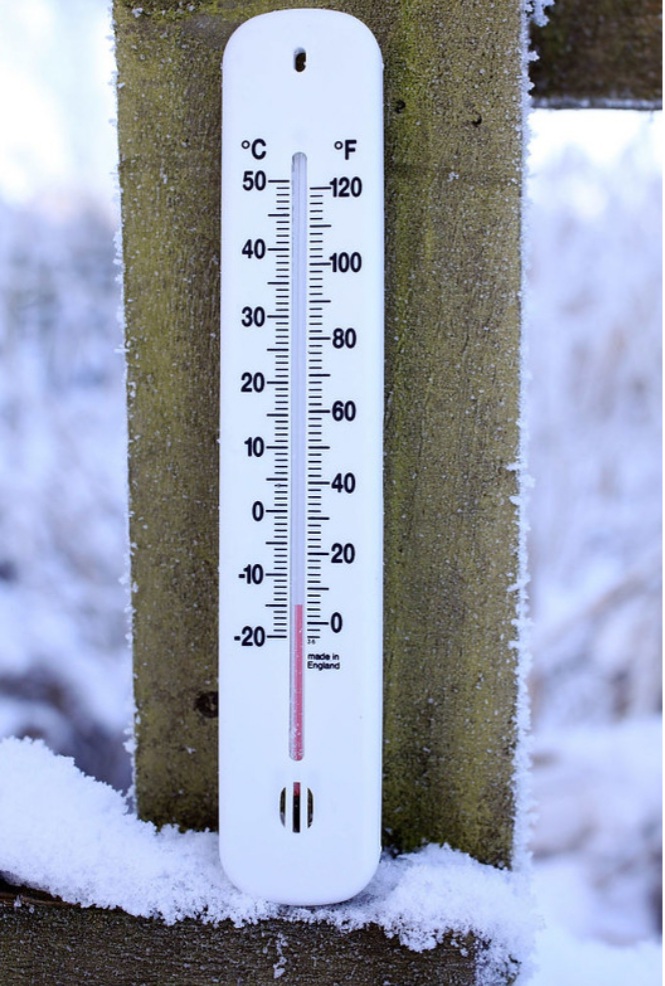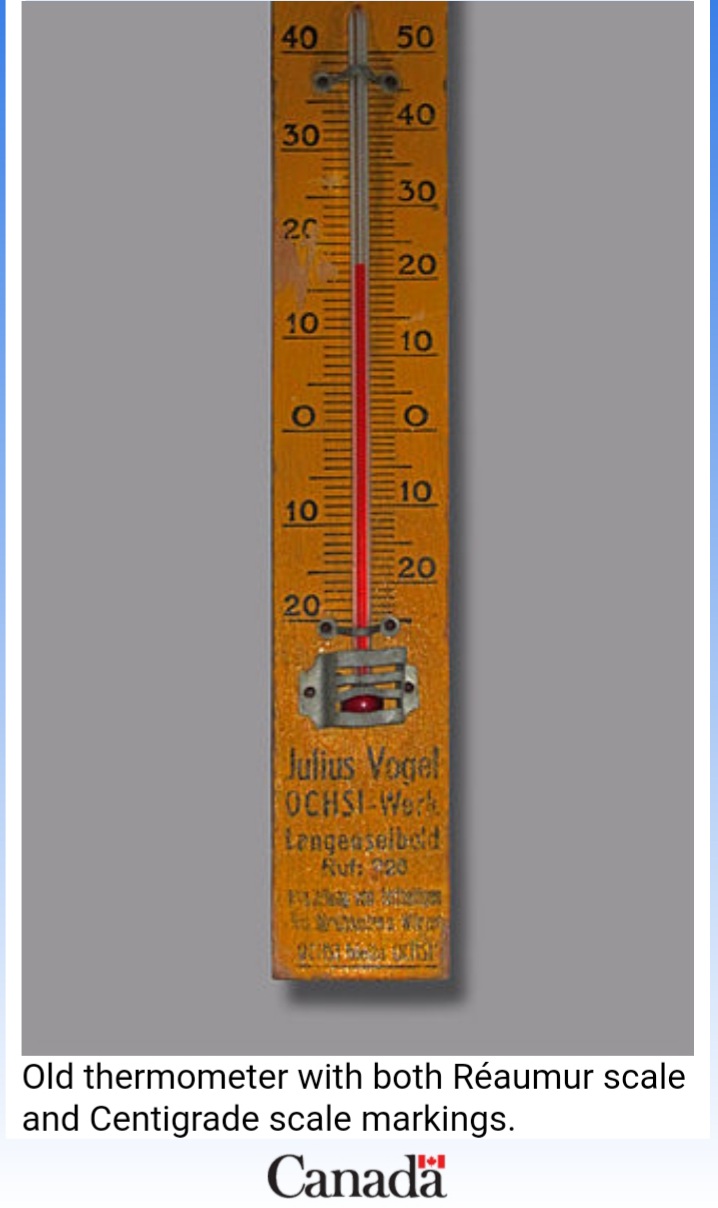**** Info via Environment Canada
A little-known temperature scale
Temperature scales give us a way of quantifying and measuring how hot or cold a material is. In the field of weather and climate – Fahrenheit and Celsius scales are frequently used, while the absolute zero-based Kelvin scale is more commonly used in research and other sciences.

But have you ever heard of the The Réaumur scale? Also known as the “octogesimal division” scale, it is a temperature scale for which the freezing and boiling points of water are defined as 0 and 80 degrees respectively. The scale was named after René Antoine Ferchault de Réaumur, who first proposed this scale in 1730.

Réaumur used ethanol for his thermometers. Initially it was thought that thermometers that used ethanol showed the change of temperature better than those using mercury. This is because, when first heated, ethanol expands faster than mercury. But there was a problem with his thermometers – the expansion of ethanol is different at different temperatures – that is, it is non-linear. So this little-known scale was quickly deemed unusable for many applications and mercury-based thermometers became the reliable instrument of choice.
In 2005, the Société historique de Montréal in Québec, entrusted all its archives to the Section des archives de la Ville de Montréal. Among these files and documents, two notebooks of statistics were found on the climate in the Montreal area from December 1, 1819 to January 1827. The author, who is unknown, recorded precise details on wind direction, heat, bad weather, cold, snow accumulation, droughts, frosts as well as on transportation on the river.
And interestingly, the author used the Réaumur scale for temperature.

See from above that the hottest day in Montreal in 1820 occurred on July 4 with a temperature reading of 26 Réaumur – which is 32.5 °C.
C = °Re / 0.8000
Access historical weather, climate data, and related information for numerous locations across Canada: Historical Climate Data.



